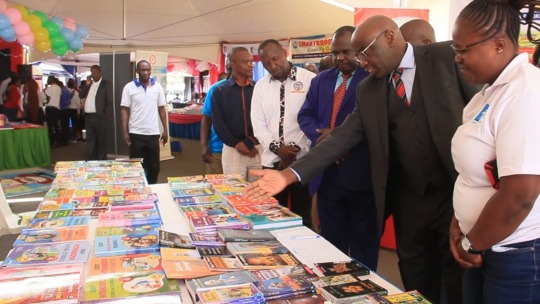
Book Piracy Denies Publishers 200 Million Annually
The piracy of set books costs publishers up to Sh200 million annually, and it has been revealed that the perpetrators have switched to offshore printing.
The Kenya Publishers Association (KPA) highlights that secondary books are among the fast-moving learning materials that unscrupulous dealers target.
“Piracy on secondary school set books is costing publishers up to Sh200 annually and it is no longer a backstreet business,” said Kamau Kiarie, the chairman of KPA.
The discoveries come at a time when Form One students are getting ready to return to schools on January 30, with requirements books on their list of required books.
While publishers decry unresolved lawsuits that have been dragging on for years, piracy has surged in the recent past, with copies selling for the same price as the original.
In Kenya, the maximum acceptable length of time for a case to be resolved from the day it was filed is one year, and any case that exceeds this is considered a backlog.
KPA identified Nakuru County as the epicenter of book piracy in Kenya, a vice that the KPA says is denying Kenyan publishers up to 40 percent of the market share.
According to the group, school textbooks are the primary target because they make up to 90 percent of Kenya’s book market and their sales are virtually assured.
Mr. Kiarie Kamau, chairman of the Kenya Publishers Association, expressed regret over the fact that in many instances, pirated books are sold at the same price as the original versions, as few buyers are able to distinguish between the two.
He added that counterfeited books not only cause publishers to incur substantial losses, but they also jeopardize the quality of education.
Mr. Kiarie points out that learners are misled by the fact that pirated books have faults that occur during the scanning of the original copies.
Some of the books have old editions’ contents jammed into the covers of newer editions.
“We suspect that some crooked main booksellers are also engaging in the vice,” he said.
The unscrupulous traders take use of technology to copy books that nearly resemble the original printing and sell them through bookshops, street sellers, or straight to parents and schools, leaving publishers to tally their losses.
Publishing involves a significant investment in content development, editing work, hiring book designers, warehousing, marketing, and legal and financial considerations such as paying royalties to book writers.
When the government implemented the direct acquisition of learning materials in 2015, which eliminated brokers from the textbook supply chain, Mr. Kiarie claimed that piracy of textbooks decreased dramatically.
In order to boost learning, the State provides textbooks directly to schools.
Prior to the policy, the government would give capitation to schools and left it to the institutions’ headteachers to buy the books.
This strategy involved brokers infiltrating the supply chain and enlisting the assistance of school head teachers, who provided them with tenders to supply the books in violation of established procurement laws.
He noted the government loses value added tax on untraceable book sales, while honest distributors and book retailers suffer from poor sales, and authors, of course, lose royalties.
Dr. Victor Lomaria, chief executive officer of the Kenya Literature Bureau (KLB), notes that piracy is damaging Kenya’s knowledge base in addition to undermining the publishing industry.
He noted that while pirates mostly scan the pages of authentic printed books, they frequently miss a page or mix together pages from other titles.
Piracy has developed and copying has been made simpler in the digital age, according to Rift Valley Regional Director of Education, Jared Obiero.
Book Piracy Denies Publishers 200 Million Annually




